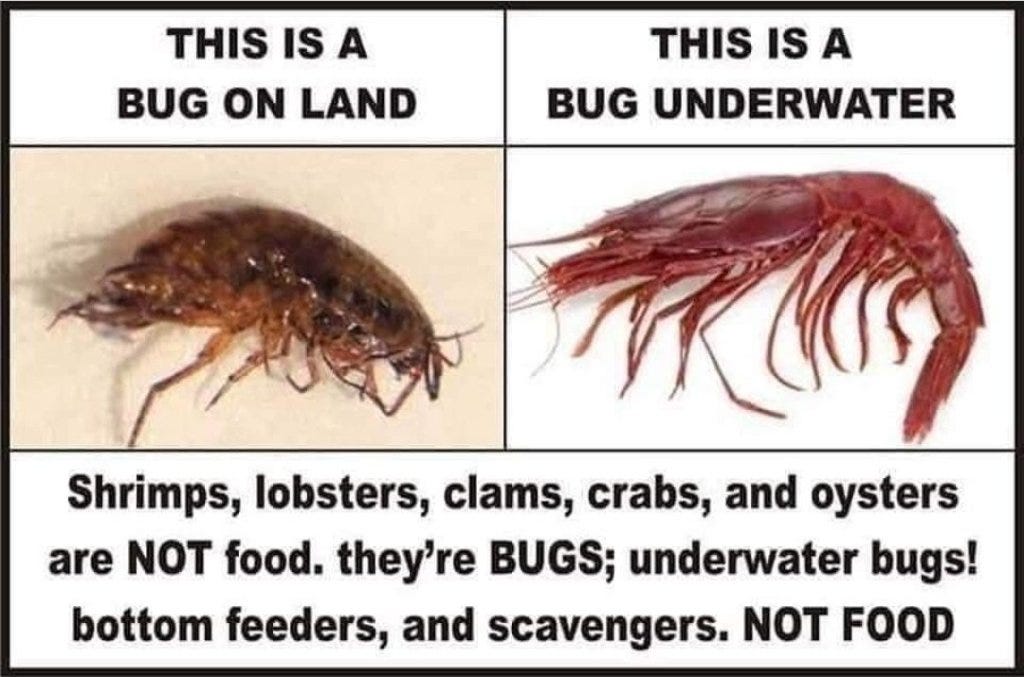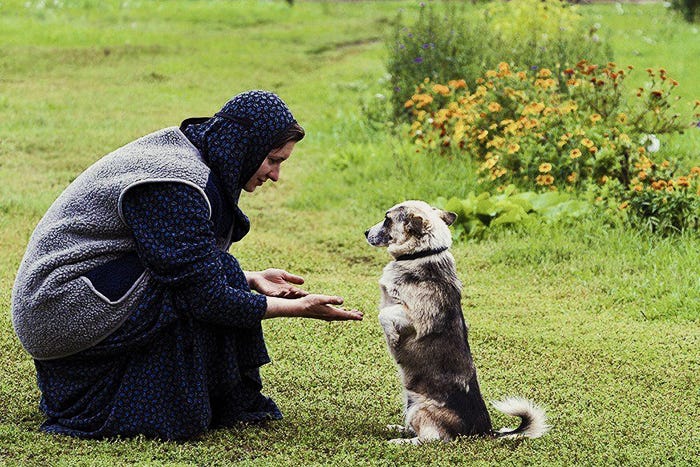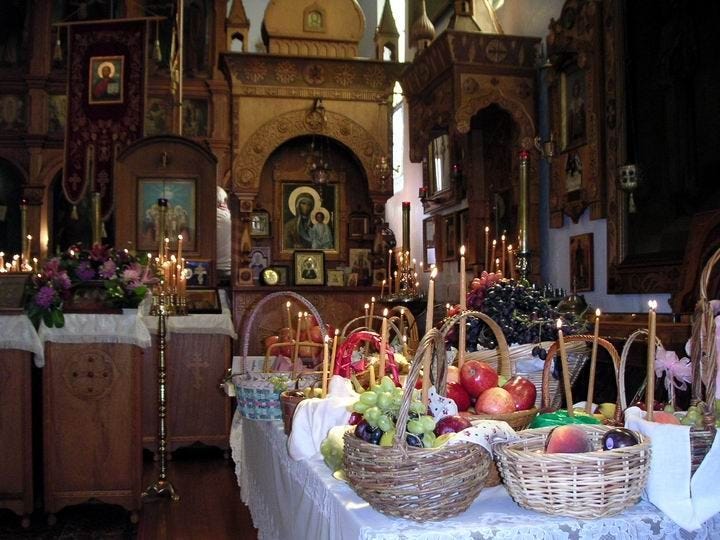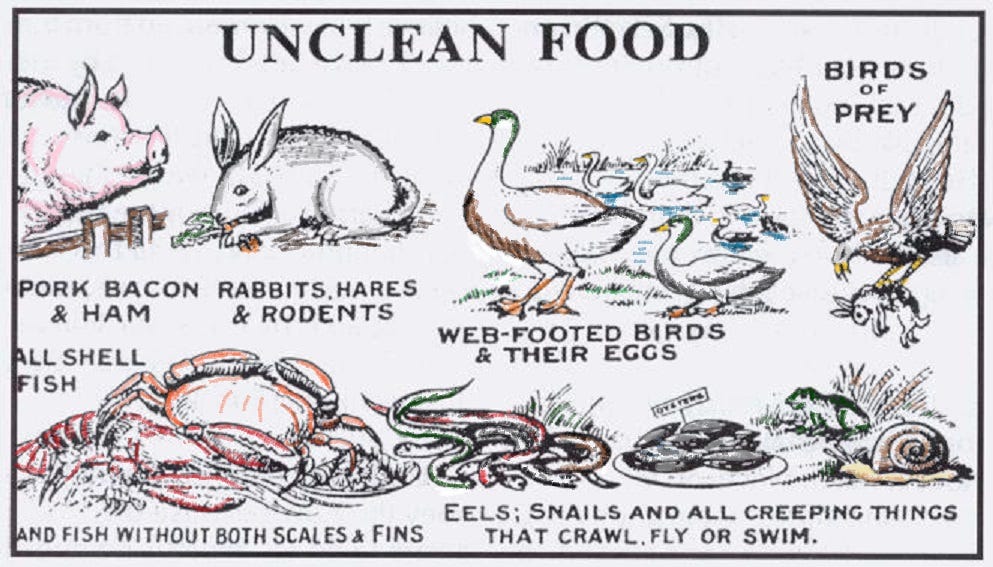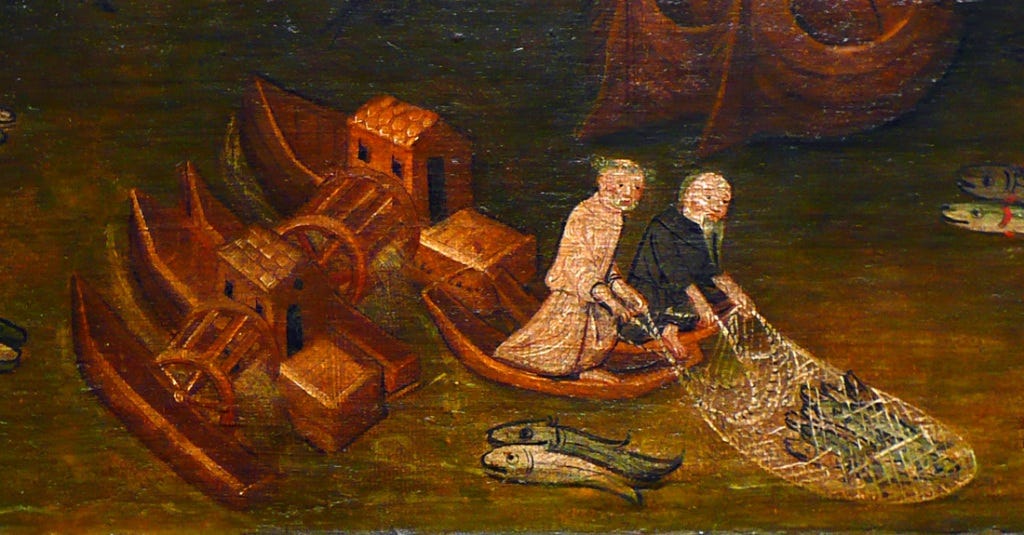The Levitical Food Laws
This will probably be one of my more controversial articles. This may seem like an ironic statement, considering the subjects I usually write about. It is no secret that before converting to Orthodoxy I was a practicing protestant, attached to a conservative branch of magisterial Protestantism. In addition to the church, my parents were particularly conservative in their reading of scripture, which as a whole I am grateful for and see as a contributing factor which led to my conversion to Orthodoxy. Like many protestants however, their interpretation of the Bible was contingent on their own theological opinions. For example, my parents kept the Levitical food laws, but refrained from keeping other parts of the Old Testament Law, as those parts of the law have been fulfilled by Christ and thus no longer apply to Christians. I maintain this custom of my parents, even though I know that it is something I am not bound to follow according to Orthodox traditions. I believe maintaining the Old Testament foods laws is something that can be spiritually beneficial, but not something that is needful for salvation, or that even failing to follow them is sinful. This subject of course requires nuance, as I can already envision accusations of Judaising or being a false convert to Orthodoxy. With this article, I do not intend to persuade others of adopting my practices, however I do hope to convey my views in such a way that demonstrate that they are acceptable within Orthodoxy.
Firstly, I must preface this article by saying that I do not believe that eating pork or shellfish is a sin, and as such doing so does not require one to confess before a priest and neither does it put one’s soul in danger. Unclean foods were deemed as such in the Old Testament for two reasons: physical and spiritual. It is no secret but many of the foods prohibited in the Old Testament are so prohibited due to them being unhealthy and difficult to prepare safely. As such, in the interest of preserving His people, it makes sense that God would prohibit certain foods. Today, many of these same prohibited foods can be prepared in ways that minimize health risks. That being said, even in the modern age, there are cases of people dying from parasites caused by eating pork. Theses parasites can migrate to the brain, killing the person. Furthermore, pork itself is not a healthy meat, being one of the first foods that a doctor will prohibit to a person after they suffer a heart attack. There are similar risks with seafood regarding mercury content. Furthermore, the ocean faring crustaceans are bottom feeders, meaning that they usually feed on dead animals that have dropped to the bottom of the ocean floor. This further makes them susceptible to diseases and contamination via bio-accumulation. This is enough for me to wish to keep the Levitical food laws, as I see them as pragmatic and a product of God’s wisdom and love for His people.
The Old Testament also makes it clear that eating prohibited food caused one to be ritually unclean. In Orthodoxy, one cannot be ritually unclean. One can be in a state of sin and require confession, but this does not alter the state of one’s being. A product of the Incarnation is the deification of man, and thus man cannot be turned away by God, only man can turn away from God. As such, ritual impurity is no longer a factor for the Christian because the repentant person is purified by and through Christ, and although they may sin and still can be damned, their being by its nature cannot be turned away from God. As such, regarding prohibited food, because man can no longer be ritually impure in the New Covenant (except with the exception of taking the mark of the beast), the eating of seafood and pork is not something that spiritually taints or contaminates the individual. This is why the Church permits Christians to eat these things, and this is also why doing so is not a sin.
However, although failing to follow the Levitical food laws is not a sin, I maintain that it is both physically and spiritually prudent to do so. I have already explained the health benefits for following these rules, and these remain constant regardless of what era we live in. I maintain the Laws are spiritually benefit because they represent a continued obedience, a continuity with the Hebrews, and an act of asceticism. I am not rigid in how I follow the food laws. They are something that I normatively keep, but I make occasional exceptions, unlike the Talmudic Jews who are so extreme in their adherence that they need two fridges to separate milk products from beef. I am aware that there may be a risk of seeming “holier than thou” and attempting to be better than the regular pork-eating Orthodox. But at Church functions I have never refused a pork or shellfish dish, and as I said before, I try not to have my keeping the food laws become something that defines either me or my Orthodoxy. As such, other than with family, the subject has never come up in conversation, and outside of family I do not think that anyone even knows I follow the laws. However, it is something that I do find spiritually beneficial, as although I do not have much of a desire to eat “unclean foods”, confirming my will to these dictates and being obedient to God regarding secular things is beneficial in controlling the passions. When I am out and wish to eat, my dietary restrictions remind me of Christ and demonstrate how everything we do should be in accordance with His will. By eating like the Hebrews, I ate as Christ did and is in part a way in which we can come to know Him better.
The Scriptural passage Christians used to justify eating unclean animals is Acts 10:9-16. In this passage, St. Peter is given a vision three times in which he is presented a banquet containing unclean animals. A voice tells St. Peter to kill and eat, and this voice is identified by St. Peter as Christ. Peter responds by refusing, saying that he has never eaten anything impure or unclean. The Lord responds, “Do not call anything impure that God has made clean.” (Acts 10:15, ESV). On the surface, this passage appears to be a repudiation of the Mosaic Law regarding food, however this passage is given context. Quoting this passage alone to justify eating previously banned foods is like when certain protestants quote Habakkuk 2:15 as a prohibition against drinking alcohol. They will quote the first half of the passage which reads “woe unto him that giveth his neighbour drink, that puttest thy bottle to him,” while leaving out the remainder of the passage which reads, “and makest him drunken also, that thou mayest look on their nakedness!” (KJV). When Catholics and Orthodox use Acts 10 to justify eating pork and the like, they neglect to read the later passages which contextualize the passage. Any protestant worth his salt will rebut with Acts 10:25-28. This passage reads:
“And as Peter was coming in, Cornelius met him, and fell down at his feet, and worshipped him. But Peter took him up, saying, Stand up; I myself also am a man. And as he talked with him, he went in, and found many that were come together. And he said unto them, Ye know how that it is an unlawful thing for a man that is a Jew to keep company, or come unto one of another nation; but God hath shewed me that I should not call any man common or unclean,” (KJV).
It is evident that St. Peter interpreted his dream as referring to people and not dietary restraints, with the unclean food symbolically representing unclean people, the gentiles, and more specifically gentile converts to Christianity. In the Mosaic Law and in the Talmud today, gentiles are seen as lesser people (if people at all) to the Jews. By this vision, it was revealed to St. Peter that prior prohibitions regarding Jews consorting with gentiles were no longer in place because Christ restored universal humanity, and as such gentiles as they were are now able to convert to Christianity. The gentile being uncircumcised or eating non-kosher food no longer rendered them ritually unclean, and thus failure to keep these practices no longer precludes salvation and should not be a stumbling block. This aligns with Romans 14:6 which reads, “he that regardeth the day, regardeth it unto the Lord; and he that regardeth not the day, to the Lord he doth not regard it. He that eateth, eateth to the Lord, for he giveth God thanks; and he that eateth not, to the Lord he eateth not, and giveth God thanks,” (KJV).
The Byzantine Lists are a series of documents created by the Orthodox Church that list Roman Catholic customs, beliefs, and practices which the Orthodox deem as errant or heretical. Some of these complaints are cultural in nature, while others are theological. A Catholic apologist recently defamed the Lists, saying that they were ridiculous and that Orthodox apologists who quote and use the Lists should as a result not be taken seriously. One of the reasons this apologist justified his claim was that the Lists condemned certain western culinary practices and meals as unclean. The lists condemn the Latins for eating “unclean animals”, specifically beaver, and unclean foods such as blood sausage. As I have said before, I do not think that eating blood sausage or beaver is a damnable offense, neither would I like to partake in either meal. Eating blood is prohibited according to Deuteronomy 12:23 (“Only be sure that thou eat not the blood: for the blood is the life; and thou mayest not eat the life with the flesh”, KJV), and blood itself is a vector for a great many diseases. I would maintain as Christians that the only blood that we should partake in is that of Christ, as again blood is seen as something sacred in Scripture and Church tradition. As for beaver, since it has been designated as unclean we would not bring one into the sanctuary of the Church, and likewise, in endeavoring to keep our bodies a clean temple for God, we should not ingest that which lives uncleanly and is potentially harmful. As we are trying to live in purity, we should thus not eat that which is impure, as it is possible for that impurity to pass on to us especially if we are in sin. Again, eating things deemed unclean is not sinful in and of itself, but what they represent regarding cleanliness and the spiritual world does relate to us and our faith. Regardless, for the Orthodox Church to at one point have recognized certain animals and foods as unclean, to me confirms that not all things are ideal for the Christian to consume. Again, I am sure that these foods are covered by economia, but eating them does seem to depart from the Orthodox Christian ideal.
Lastly, the prohibition of eating milk and meat of the same animal together is to me an act of honouring the creature which gave its life so that we may be sustained. Exodus 23:19 states “the first of the firstfruits of thy land thou shalt bring into the house of the Lord thy God. Thou shalt not seethe a kid in his mother’s milk.” The mental image of boiling a cow or a lamb in the milk of its mother is one of cruelty and abuse, as not only are we killing the animal, but we are killing it via the substance which sustains its own life. It appears to be a violation of nature itself, to take that which gives life and to use it to kill and satiate our senses. For the Orthodox Christian, we seek to tame our senses and our passions, and as such consuming milk products and meat evidently appears to go against this endeavor. As stewards of creation seeking to unite ourselves to Christ, we must consider not only what we consume, but the manner by which we consume as well. Again, I do not wish to condemn anyone and do not believe that these unclean or improper foods damn those who eat them, but rather, as Christians we seek that which is ideal, and that, by necessity, involves our dietary choices.






